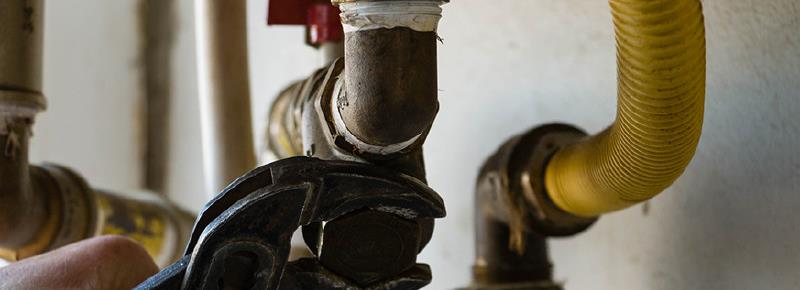Gas Connector Safety
Are Your Gas Connectors Safe?
Learn how to keep your gas stove, gas dryer, and other gas appliances from becoming fire hazards.
While gas appliances often function well with proper care and maintenance, it's important to be aware of hazards that can arise from improper use of, or defects in, gas connectors. Gas connectors are corrugated tubes specifically designed to connect a gas appliance to gas piping.
Keep the following tips in mind for gas appliance and gas connector safety.
- Avoid moving natural gas appliances. Connectors can break easily if moved even slightly, possibly resulting in a fire or explosion.
- Connectors should always be replaced whenever an appliance is removed from its location or replaced.
- Gas appliance connectors should be inspected regularly and replaced as needed.
- Certain types of flexible connectors that were manufactured between 1970 and 1980 may fail over time and need to be replaced. (We have found that customers still have them on older appliances such as ranges, clothes dryers, water heaters, and space heaters.)
- History has shown that older, flexible gas connectors made of uncoated brass can weaken or crack over time, and could lead to a dangerous gas leak. Any uncoated brass gas appliance connector should be replaced immediately with a new stainless steel connector.
- Customers can make arrangements to replace their old or broken flexible gas connectors for a fee by contacting PSE&G WorryFree or their local plumber. Learn more about PSE&G's WorryFree program here.





















